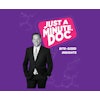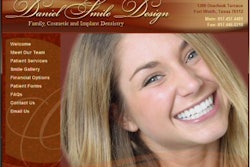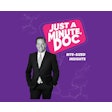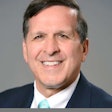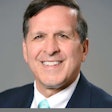
SAN FRANCISCO - Patient communication can be a sensitive issue. But dentists and their staff members are much better communicators than they generally give themselves credit for, according to Robin Wright, Ph.D., speaking at the California Dental Association (CDA) Fall Scientific Session on Friday.
"Research has shown that patients are more satisfied with the conversations they have in dentists' offices than with any other medical specialty," said Wright, a dental communications consultant and author of Tough Questions, Great Answers: Responding to Patient Concerns About Today's Dentistry (Carol Stream, IL: Quintessence, 1997). "So 90% of your conversations are effective. It's the other 10% that can ruin your day."
That's why it is important to develop and implement strategies for dealing with difficult patients and questions, she said. Questions such as:
- "Don't you have any openings sooner?"
- "Why are you running behind?"
- "Why fill baby teeth when they fall out anyway?"
- "Do I really need this treatment?"
And one of Wright's all-time favorites: "Is the doctor any good?"
"What do they think you're going to say to that -- no?" Wright said. "And then they'll ask, 'Is she nice?' To which I would say, 'No -- but she's good.' "
As annoying as such questions can be, however, they are also an indication that you and your staff are doing a good job, she added.
"Studies have shown that patients want more information than they ask for," Wright said. "So questions and complaints mean you are doing a good job of making your patients feel that you are approachable."
And how you answer their questions is critical to ensuring successful communication during the three key aspects of any dental office visit: reception, treatment planning and acceptance, and finances. Wright outlined several key strategies for optimizing patient interactions, including the following:
Listen well and longer than you want to. "If a patient is upset, be the best listener you can be," Wright advised. "Support, paraphrase, and sympathize -- over and over until the patient is done and ready to listen. They will not hear your answer until they are assured that you have heard their point of view."
Stay calm. "No matter what, stay tactful and professional at all times," she said. "I tell myself that I am not the only reason they are upset -- I am just the straw that broke the camel's back. And I have absolutely no control over that person's behavior, only my own."
Ignore unfair criticism. " 'There's a mistake on my bill' is a fair criticism," Wright said. " 'You're trying to cheat me' is an unfair criticism."
Don't tell too much. "You know so much more than you have time to tell. You just need to make good decisions about what information to tell. Pick and choose your messages," she said.
Use appropriate humor. "Research has shown that nonsued physicians were more likely to have used humor with their patients," she noted.
Wright spent a good part of her two-and-a-half-hour session talking about strategies for promoting treatment acceptance and how best to deal with patient fears and questions regarding proposed treatments. For example, if a patient says, "Do I really need the treatment being recommended?" often they are really saying, "Do I need it now?"
"And your answer should address this," Wright said. "It is important to describe both the benefits and the consequences. But put the patient in the driver's seat. Be a consultant in their decision-making process."
Dentists do not discuss the dental benefits of a procedure often enough, she added. "In all medical areas outside of dentistry, discussing the benefits and consequences of a treatment are exactly equal in terms of getting a patient to follow through on something," she said. "But in dentistry, discussing the benefits far outweighs discussing the consequences."
In the long run, good communication will yield patients who experience less discomfort, require less medication, and have less anxiety, Wright noted.
"It will also keep your patients coming back," she said.

